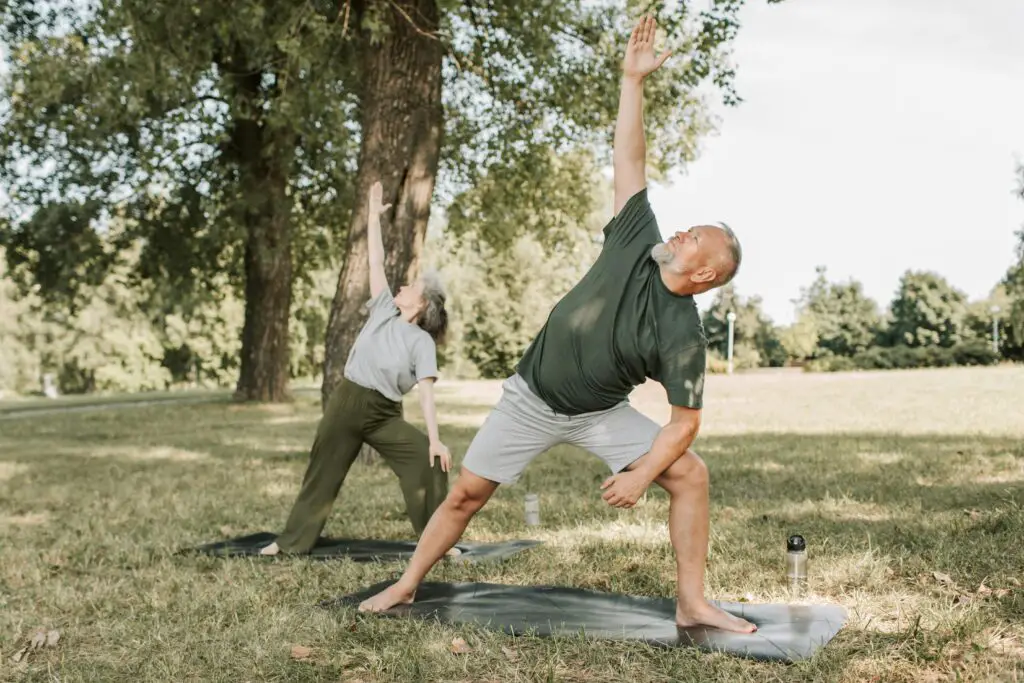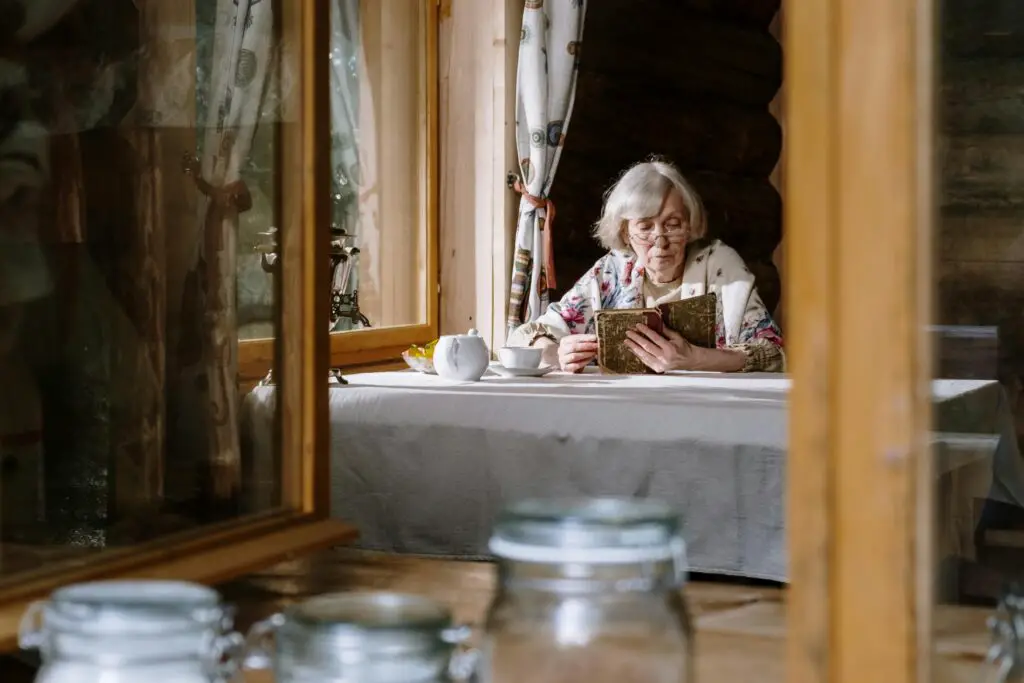1. You Might Miss Your Alarm Clock

It sounds ridiculous at first—why would anyone miss a blaring alarm at 6 a.m.? But after decades of having your mornings dictated by a schedule, it’s oddly disorienting to suddenly wake up with no real reason to get out of bed. You might even find yourself still waking up early, only to stare at the ceiling wondering what to do next. That structure, annoying as it was, gave each day a sense of purpose shares Yahoo Finance.
Without it, mornings can feel a little lost. Coffee tastes different when you’re not rushing to get out the door. The silence that once felt like a luxury might now feel a little lonely. And yes, you might find yourself setting a fake alarm just for a hint of that old routine adds Investopedia.
2. Weekends Start to Lose Their Meaning

For most of your working life, weekends were sacred. Friday nights were thrilling, Saturdays were for chores or fun, and Sundays had that familiar bittersweet feel. But once you’re retired, the weekend blends into the rest of the week like cream in coffee shares Kiplinger.
It’s both freeing and strange. You might forget what day it is, or wonder why the grocery store is suddenly packed (oh right—it’s Saturday). The lack of structure makes every day full of possibility, but also a little formless. You might even find yourself craving a calendar again adds AOL.
3. You May Struggle With Guilt Over Relaxing

We spend our whole lives working toward retirement, picturing lazy mornings and guilt-free naps. But when the time actually comes, relaxing can feel…wrong. You might catch yourself folding laundry at 9 p.m. just to feel productive.
There’s a voice in the back of your head telling you that you should be doing something. It’s hard to shake decades of hustle culture overnight. Even watching a movie in the middle of the afternoon can feel like you’re breaking a rule. But eventually, with time, you might learn to embrace rest as a right—not a reward.
4. Friends Can Drift Away

During your working years, you’re surrounded by people without even trying. There are meetings, lunch breaks, casual hallway chats. But retirement can make your social circle shrink without warning. Suddenly, those daily connections aren’t automatic anymore.
Some friends are still working, and others have moved away or are just busy. Keeping in touch takes real effort. You might need to be the one who initiates plans more than you’re used to. And that can be surprisingly hard when your days are wide open but a little aimless.
5. You Could Lose Your Sense of Identity

For a long time, your job probably wasn’t just something you did—it was part of who you were. Teacher. Nurse. Engineer. Whatever it was, it gave your life shape and meaning. Once that title is gone, you might find yourself wondering, “Who am I now?”
It’s not an easy question to answer. Retirement is often sold as a time of freedom, but that freedom can be unmooring. You might try volunteering, taking classes, or picking up hobbies, just to feel like “someone” again. And that’s completely normal.
6. Your Relationship Might Get Weird

Even the happiest couples go through growing pains when retirement hits. Suddenly you’re spending way more time together than ever before. What used to be cute can start to feel a little irritating, and new routines don’t always sync up smoothly.
One person might want to travel, while the other just wants peace and quiet. You might have to renegotiate chores, personal space, and expectations. Retirement can feel like a second adolescence—but for couples. It takes some communication (and patience) to navigate.
7. You May Start Talking to Your Pets More

With fewer people around during the day, pets often become unexpected confidants. You might start narrating your day to your cat or asking your dog what they think about dinner. And no, you’re not losing it—it’s actually pretty common.
Animals can offer comfort, routine, and even a bit of comic relief. But they also remind you of the quiet that’s settled into your home. You might catch yourself sharing snacks or turning on music for them. In a weird way, they become coworkers in your solo office of retirement.
8. You Might Become Obsessed With the Weather

When you’re no longer confined to a cubicle or schedule, the weather becomes a major part of your decision-making. Is it sunny enough for a walk? Too windy for the beach? Should I mow the lawn today or wait for Thursday’s cool front?
Suddenly, local forecasts become essential viewing. You might even start noticing cloud types or tracking rainfall totals. This shift isn’t just about boredom—it’s about tuning into the world around you more than before. And hey, it gives you something to chat about with the neighbors.
9. You May Develop Strange New Hobbies

With time on your hands, your curiosity starts to wander. You might find yourself baking bread from scratch, learning how to whittle, or collecting antique radios. Things that never interested you before suddenly seem fascinating.
Sometimes it’s just about filling the hours. Other times, it’s about rediscovering parts of yourself that got buried under years of responsibilities. These hobbies might seem odd to others, but they can be deeply satisfying. And who says you can’t become a puzzle master at 68?
10. Money Anxiety Doesn’t Just Disappear

You’d think that once the paycheck stops, the stress would too—but that’s not always the case. Even with savings, pensions, or Social Security, many retirees still worry about running out of money. Every purchase starts to feel like a math problem.
There’s a new kind of budgeting that replaces the old one. You might skip dinners out or hesitate on big vacations, even if you can technically afford them. The shift from earning to spending what you’ve saved can be emotionally tricky. And it can take a while to feel okay about treating yourself.
11. You Might Feel Invisible

In the workforce, people notice you—whether it’s for your ideas, your leadership, or just showing up on time. But in retirement, you might start to feel overlooked. Clerks talk to your spouse instead of you. Younger folks barely glance your way.
It’s a tough shift that hits some people harder than others. Feeling invisible isn’t just about age—it’s about losing that sense of being needed or recognized. Sometimes you have to find new places to shine, like community centers or creative outlets. But it’s okay to admit it stings a little.
12. Your Body Might Rebel—Even When You’re Resting

You might have imagined retirement as the time your body would finally get a break. No more lifting boxes or sitting at a desk all day. But weirdly, aches and pains don’t always ease up—they sometimes get worse. And you might start feeling stiff even after a good night’s sleep.
That lack of movement can be sneaky. Without a routine to keep you up and going, joints can get cranky and muscles a bit weaker. You might have to make movement a priority, even when there’s no reason to leave the house. Retirement workouts might look different, but they matter just as much.
13. You Could Get Addicted to Daytime TV

It starts innocently enough—you turn on a show while folding laundry or eating lunch. But before you know it, you’ve seen three full hours of court shows and know every twist in the latest soap. Suddenly, daytime TV is your new coworker.
It’s comforting, familiar, and sometimes mind-numbing. But it can easily become a routine you didn’t mean to create. You might even find yourself planning your errands around reruns. No judgment here—it happens to the best of us.
14. You Might Rethink Your Wardrobe Entirely

Goodbye work clothes, hello… what, exactly? Retirement makes you question what you even want to wear each day. Suddenly, suits and business casual are gathering dust, and stretchy pants seem like a dream.
But it can also lead to a weird identity shift. Clothes say something about who we are, and when those change, we sometimes feel a little lost. You might end up experimenting with colors, styles, or even shoes you never tried before. Retirement fashion? It’s a thing—and it’s whatever makes you happy.
15. You’ll Probably Think About Your Legacy More Than Ever

Without the daily distractions of work, your thoughts start to go deeper. You might find yourself wondering what you’ll be remembered for. Did you leave a mark? Did you make a difference? These aren’t small questions.
They can hit you in quiet moments—staring out a window or sorting through old photos. You might start writing down stories, or finally tackle that family tree. It’s not about being morbid—it’s about making sense of your life. And it’s one of retirement’s most surprising, meaningful side effects.
